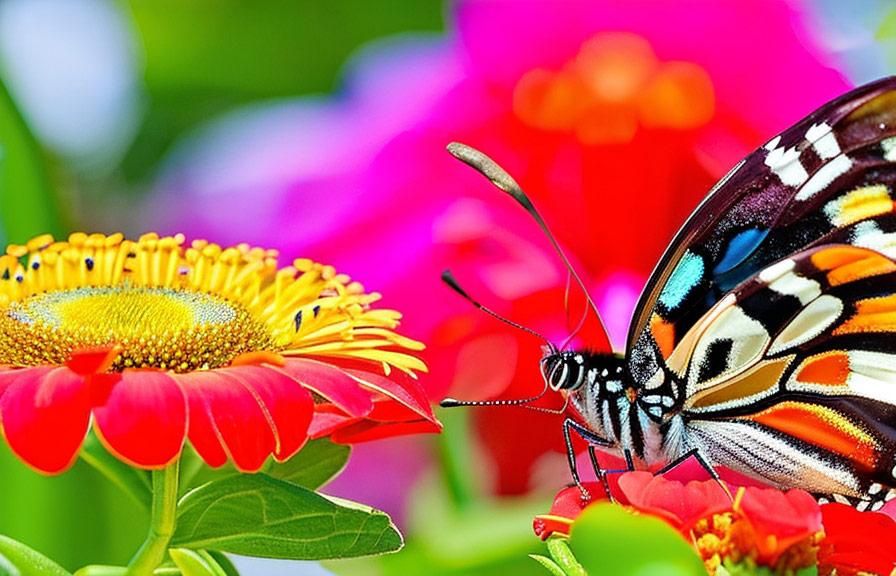Did you know that there are more than 8.7 million species on earth? that's a lot of potential subjects for your nature photography! capturing the beauty and diversity of the natural world has never been more crucial, as it allows us to share the wonders of our planet and inspire conservation efforts.
But how do you find and photograph nature, and what are the best cameras and lenses for nature photography? this blog post will explore these questions and provide you with the knowledge to take stunning nature photos.

Finding and photographing nature
To find and photograph nature, you need to know where to look. start by researching natural areas near your home, such as parks, forests, and wildlife refuges. these areas can be rich in biodiversity and provide ample opportunities for nature photography.
Next, learn about the habits and habitats of your subjects. for example, if you're interested in photographing birds, you'll want to know where they nest, feed, and migrate. you can also use resources like field guides, online forums, and local naturalist groups to help you identify species and learn about
Their behaviors.
Once you've located your subjects, observe them from a distance, and be patient. nature photography often requires waiting for the perfect moment, whether it's an animal emerging from its den or a flower opening in the sunlight.
Use a tripod to steady your shots and minimize camera shake, and be prepared to take many photos to increase your chances of getting the perfect shot.
Best cameras for nature photography
Choosing the right camera is essential for capturing the beauty and diversity of nature. here are some of the best cameras for nature photography:
1. Nikon d850: with a 45.7-megapixel full-frame sensor, the nikon d850 offers exceptional image quality and dynamic range. its fast autofocus system and high-speed continuous shooting make it perfect for capturing wildlife in action.
2. Canon eos r5: this mirrorless camera boasts a 45-megapixel full-frame sensor and an impressive 12 frames per second continuous shooting speed. its advanced autofocus system and 5-axis in-body image stabilization make it an ideal choice for nature photographers.
3. Sony a7r iv: with a 61-megapixel full-frame sensor, the sony a7r iv delivers stunning image quality and detail. its robust autofocus system and high-speed continuous shooting make it a top choice for wildlife and landscape photographers alike.
4. Fujifilm gfx 100: for those who want medium format image quality, the fujifilm gfx 100 features a 102-megapixel sensor, providing incredible detail and dynamic range. its rugged design is perfect for nature photographers who need a durable camera.
5. Olympus om-d e-m1 mark iii: for a more compact option, the olympus om-d e-m1 mark iii offers a 20.4-megapixel micro four thirds sensor and 5-axis in-body image stabilization. its weather-sealed design and lightweight build make it an excellent choice for photographers on the go.
Best lenses for nature photography
The right lens can make all the difference in capturing stunning nature photos. here are some of the best lenses for nature photography:
1. Telephoto zoom lenses: ideal for wildlife photography, telephoto zoom lenses like the canon ef 100-400mm f/4.5-5.6l is ii usm or the nikon af-s nikkor 200-500mm f/5.6e ed vr allow you to get close to your subjects without disturbing them.
Look for lenses with image stabilization to help reduce camera shake.
2. Wide-angle lenses: for landscape photography, wide-angle lenses like the canon ef 16-35mm f/4l is usm or the nikon af-s nikkor 14-24mm f/2.8g ed allow you to capture expansive scenes and dramatic perspectives. these lenses are also useful for photographing small subjects in their natural environments.
3. Macro lenses: macro lenses like the canon ef 100mm f/2.8l macro is usm or the nikon af-s vr micro-nikkor 105mm f/2.8g if-ed allow you to capture close-up images of tiny subjects, such as insects and flowers.
Look for lenses with a 1:1 magnification ratio for true life-size reproduction.
4. Prime lenses: prime lenses, like the canon ef 50mm f/1.4 usm or the nikon af-s nikkor 50mm f/1.8g, offer a fixed focal length and often have wider apertures. these lenses can provide sharper images and better low-light performance, making them a versatile choice for various nature photography situations.
Conclusion
Finding and photographing nature requires patience, knowledge, and the right equipment. by choosing the best cameras and lenses for nature photography, you'll bewell on your way to capturing stunning images that celebrate the diversity of our planet.
And don't forget that unique fact we mentioned earlier: there are more than 8.7 million species on earth! that's plenty of inspiration for your next nature photography adventure. so get out there, explore the natural world, and share your images with others to promote appreciation and conservation of our planet's
Incredible biodiversity.
